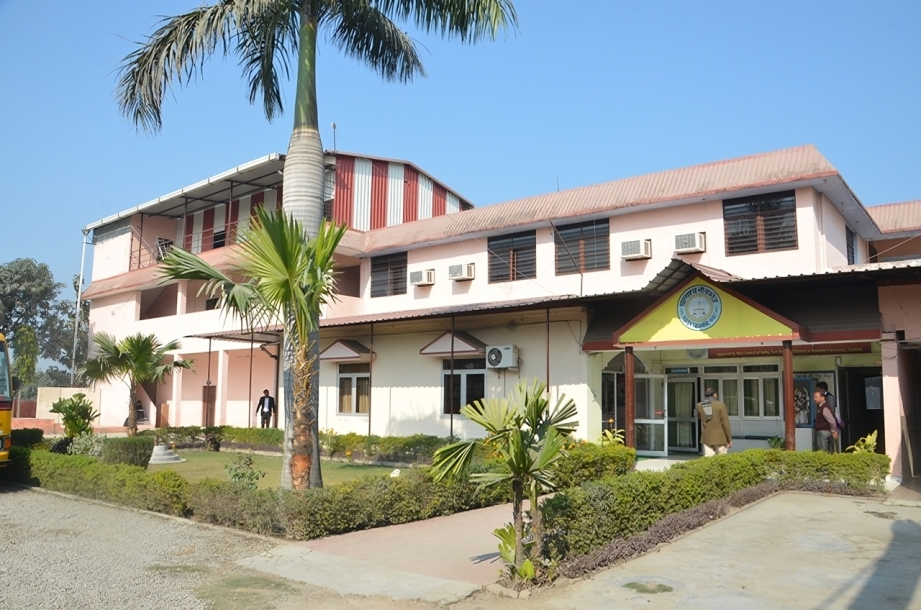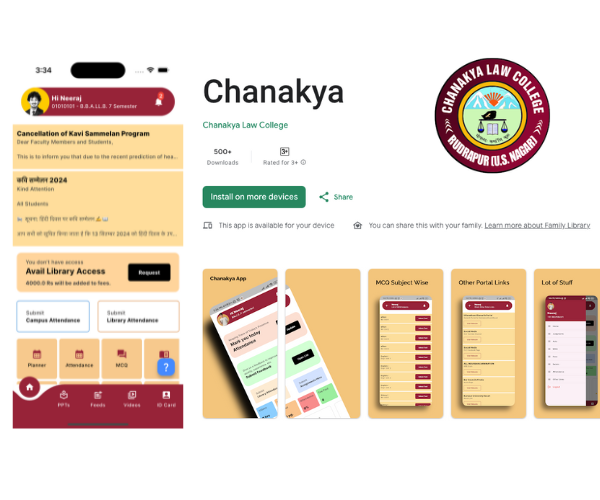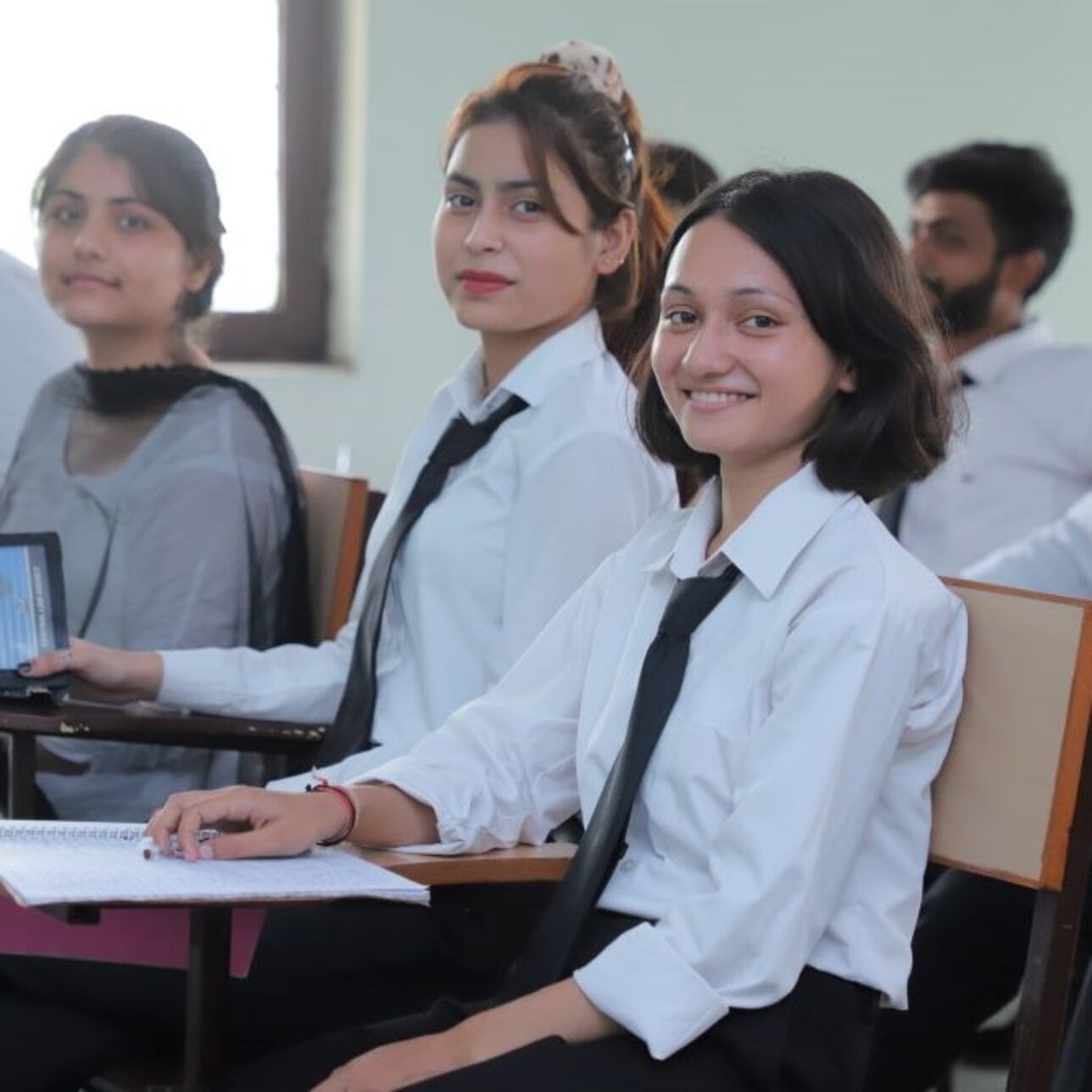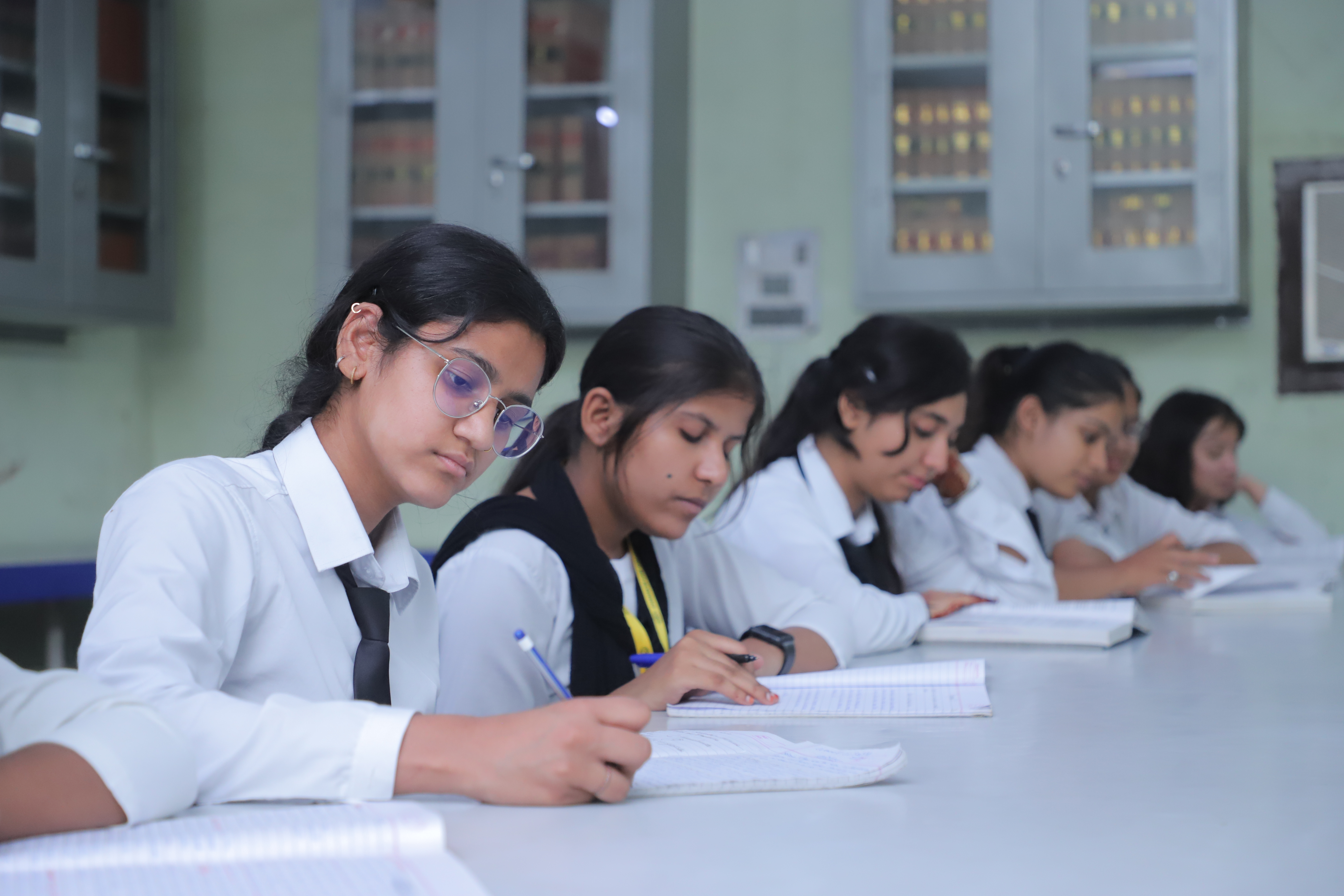B.A.LL.B.
B.A.LLB (Bachelor of Arts – Bachelor of Legislative Law) is a five-year integrated LLB course …
Know MoreWhere students can freely meet and talk with faculty and staff. That helps to create an excellent learning environment for the young adults

 Chanakya Law College
Chanakya Law College
Chanakya Law College is a place “where students can freely meet and talk with faculty and staff. That helps to create an excellent learning environment for the young adults.”
At Chanakya Law College, students thrive in a setting where open communication with faculty and staff is encouraged, fostering an excellent learning environment.

B.A.LLB (Bachelor of Arts – Bachelor of Legislative Law) is a five-year integrated LLB course …
Know More
The B.B.A.LL.B. (Bachelor of Business Administration and Bachelor of Legislative Law) is an integrated dual …
Know More
The LL.B. (Bachelor of Laws) is an undergraduate law degree that provides comprehensive legal education …
Know More

The LL.M. (Master of Laws) is a postgraduate degree designed for law graduates and professionals …
Know More
Welcome to the Chanakya Law College Student App, your comprehensive tool for learning and managing activities tailored specifically for students of Chanakya Law College.
Watch Lectures: Access recorded lectures conveniently on your mobile device, ensuring you never miss a class.
Read Notes: Dive into course materials anytime, anywhere, and stay ahead with curated notes.
Track Assignments: Keep track of your assignments and deadlines effortlessly, so you can stay organized and on top of your coursework.
Connect with Peers: Engage with fellow students and faculty through discussion forums and messaging, enhancing collaboration and support throughout your academic journey.
Download Our App
 From Chairman's Desk
From Chairman's Desk
Dear Students, Education is the passport to the future, for tomorrow belongs to those who prepare for it today.
 From Director's Desk
From Director's Desk
Dear Aspirants, Education plays a pivotal role in the development of society by aptly articulating human personality at the formative stage..
Commenced from
Successfully pass out student
Faculty

Carefully review the admission guidelines and eligibility criteria on the Application Page.
Fill out the online application form with accurate details and upload all required documents.
Complete the payment process for the application fee using the available online methods to finalize your application.
Chanakya Law College offers a state-of-the-art learning environment to its students. The college boasts a fully air-conditioned building, ensuring a comfortable atmosphere for studying and attending lectures.
The library at Chanakya Law College is a treasure trove of knowledge, housing an extensive collection of over 10000 books. These books are meticulously organized into different sections, catering to the diverse academic interests of the students.
A moot court competition simulates a court hearing (usually an appeal against a final decision), in which participants analyze a problem, research the relevant law, prepare written submissions, and present oral argument.


Copyright © 2024 | Chanakya Law College | All Rights Reserved.